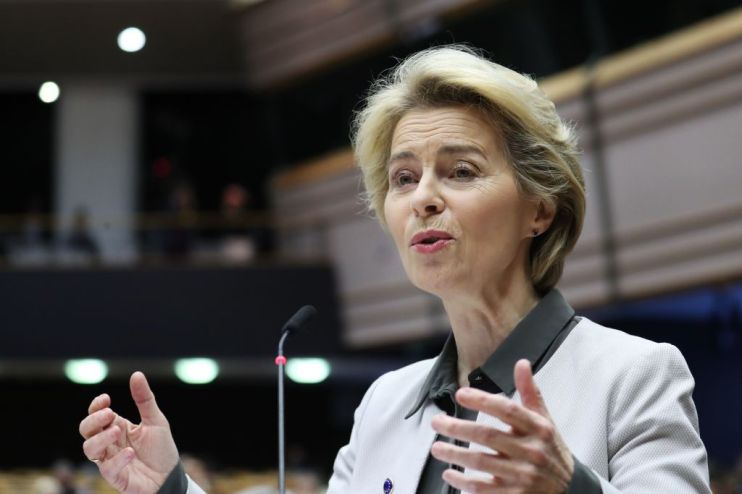EU Commission unveils ‘European Green Deal’ in Brussels

The president of the EU Commission today in Brussels set out the details of her long-expected “European Green Deal”, as the UN climate summit continues in Madrid.
Ursula von der Leyen described the plan, which would make the EU the world’s first climate neutral continent by 2050, as Europe’s “man on the moon moment.”
Read more: UN climate change summit opens in Madrid
Von der Leyen said: “We are determined to succeed for the sake of this planet and life on it – for Europe’s natural heritage, for biodiversity, for our forests and our seas. By showing the rest of the world how to be sustainable and competitive, we can convince other countries to move with us.”
Central to the plan is a commitment to reduce emissions by 50 per cent by 2030 compared with 1990 levels, up from current targets of 40 per cent.
To fix the plan’s ambitions into legislation, the Commission will present the first “European Climate Law” within 100 days.
Another crucial element announced was the “Just Transition Fund”, a package of financial aid for countries, especially those in eastern Europe, that want to transition away from fossil fuels.
Although the final size is dependent on the EU’s budget for 2021-2027, it is expected to amount to at least €35bn.
The plan also suggests that at a minimum of 25 per cent of the budget should be used for climate action purposes, supported by the European Investment Bank.
Early in 2020 the Commission will present a Sustainable Europe Investment Plan to lay out proposals for investment requirements.
Meeting current targets will already require an estimated €260bn (£218.9bn) of investment, roughly 1.5 per cent of the GDP of the EU in 2018.
Steel manufacturer Arcelormittal issued a statement welcoming the news. Geert van Poelvoorde said:
“Europe’s commitment to reduce its carbon emissions to be net-zero should be applauded and we commend the leadership of Mrs von der Leyen and her team.
“However, the Green Deal will only work if there is full-scale transformation and support for industries.
“Achieving our ambition of being carbon neutral by 2050 is a major challenge, but with the right political framework – allowing European steelmakers to remain competitive while the steel industry moves to carbon-neutral steelmaking – we’re convinced it’s achievable.”
However, the programme was dealt a setback within hours of being announced after a number of states blocked a set of new rules governing which financial products can be called “green” and “sustainable.”
Britain and France joined a number of eastern European countries in opposing the agreement, amid fears it would prevent investments in nuclear and coal projects being labelled as green.
Read more:Greta Thunberg crowned Time person of the year for 2019
France is largely dependent on nuclear power, whilst states such as Hungary and Poland still rely on coal power.
Bas Eickhout, deputy chairman of the Greens-European Free Alliance, said that “the parliament would not renegotiate.”